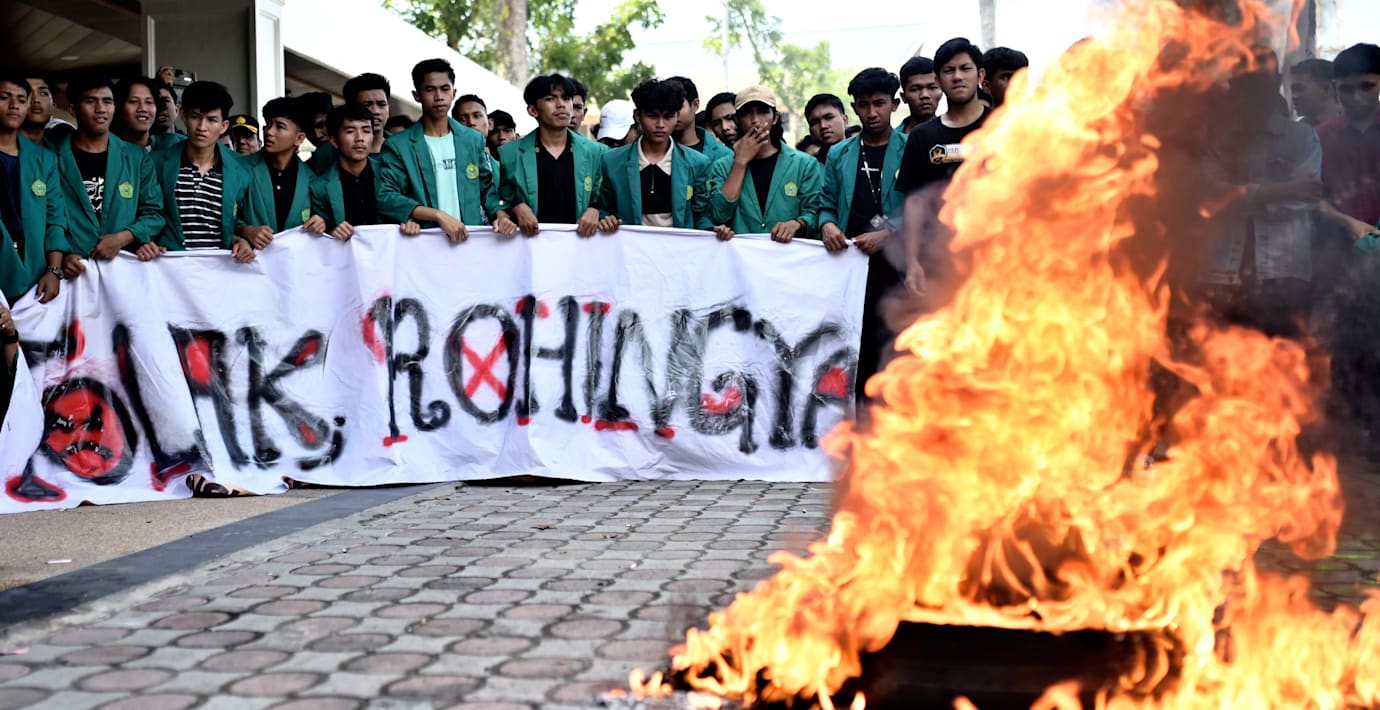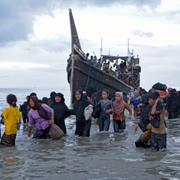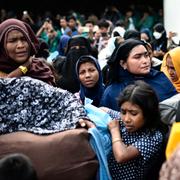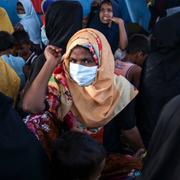Wikipedia (en)
The Rohingya people (; Rohingya: 𐴌𐴗𐴥𐴝𐴙𐴚𐴒𐴙𐴝, IPA: [rʊˈɜi̯ɲ.ɟə]) are a stateless Indo-Aryan ethnic group who predominantly follow Islam and reside in Rakhine State, Myanmar. Before the Rohingya genocide in 2017, when over 740,000 fled to Bangladesh, an estimated 1.4 million Rohingya lived in Myanmar. Described by journalists and news outlets as one of the most persecuted minorities in the world, the Rohingya are denied citizenship under the 1982 Myanmar nationality law. There are also restrictions on their freedom of movement, access to state education and civil service jobs. The legal conditions faced by the Rohingya in Myanmar have been compared to apartheid by some academics, analysts and political figures, including Nobel laureate Bishop Desmond Tutu, a South African anti-apartheid activist. The most recent mass displacement of Rohingya in 2017 led the International Criminal Court to investigate crimes against humanity, and the International Court of Justice to investigate genocide.The Rohingya maintain they are indigenous to western Myanmar with a heritage of over a millennium and influence from the Arabs, Mughals, and Portuguese. The community claims it is descended from people in precolonial Arakan and colonial Arakan; historically, the region was an independent kingdom between Southeast Asia and the Indian subcontinent. The Myanmar government considers the Rohingya as British colonial and postcolonial migrants from Chittagong in Bangladesh. It argues that a distinct precolonial Muslim population is recognized as Kaman, and that the Rohingya conflate their history with the history of Arakan Muslims in general to advance a separatist agenda. In addition, Myanmar's government does not recognise the term "Rohingya" and prefers to refer to the community as "Bengali". Rohingya campaign groups and human rights organizations demand the right to "self-determination within Myanmar".Various armed insurrections by the Rohingya have taken place since the 1940s and the population as a whole has faced military crackdowns in 1978, 1991–1992, 2012, 2015, and particularly in 2016–2018, when most of the Rohingya population of Myanmar was driven out of the country, into neighbouring Bangladesh. By December 2017, an estimated 625,000 refugees from Rakhine, Myanmar, had crossed the border into Bangladesh since August 2017. UN officials and Human Rights Watch have described Myanmar's persecution of the Rohingya as ethnic cleansing. The UN human rights envoy to Myanmar reported "the long history of discrimination and persecution against the Rohingya community... could amount to crimes against humanity", and there have been warnings of an unfolding genocide. Probes by the UN have found evidence of increasing incitement of hatred and religious intolerance by "ultra-nationalist Buddhists" against Rohingyas while the Myanmar security forces have been conducting "summary executions, enforced disappearances, arbitrary arrests and detentions, torture and ill-treatment, and forced labour" against the community.Before the 2015 Rohingya refugee crisis and the military crackdown in 2016 and 2017, the Rohingya population in Myanmar was close to 1.4 million, chiefly in the northern Rakhine townships, which were 80–98% Rohingya. Since 2015, over 900,000 Rohingya refugees have fled to south-eastern Bangladesh alone, and more to other surrounding countries, and major Muslim nations. More than 100,000 Rohingyas in Myanmar are confined in camps for internally displaced persons. Shortly before a Rohingya rebel attack that killed 12 security forces on 25 August 2017, the Myanmar military launched "clearance operations" against the Rohingya Muslims in Rakhine state that, according to NGOs, the Bangladeshi government and international news media, left many dead, and many more injured, tortured or raped, with villages burned. The government of Myanmar has denied the allegations.



